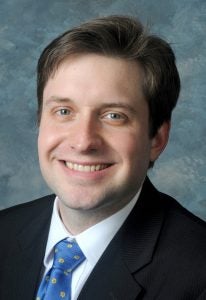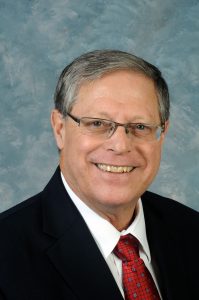Boyle’s legislators oppose pension plan as proposed
Published 8:10 am Tuesday, November 14, 2017
Boyle County’s state senator and representative are in agreement on Gov. Matt Bevin’s proposal for pension reform: They won’t support it in its current form.
“That bill as it’s written will not pass,” state Sen. Rick Girdler (R-Somerset) said.
Bevin’s plan, called “Keeping the Promise,” was released last month. It aims to reduce Kentucky’s estimated unfunded pension liability of more than $64 billion. To accomplish that, it proposes, among other things, a shift toward 401(a) retirement plans, rather than defined benefit pensions for state workers.
The plan has been criticized by many, perhaps most vocally by teachers, who say the bill would force them to retire early or lose retirement benefits they’ve earned; and it would prevent them from returning to a meaningful level of work in the public sector after retirement.
Both Girdler and state Rep. Daniel Elliott (R-Danville), were quick to point to a certain requirement in the plan — that workers contribute an extra 3 percent of their paychecks to a health care retiree fund — as a major reason for their opposition.

Daniel Elliott
“First, I think the requirement of a 3-percent retirement health care contribution across the board is a very drastic and damaging deduction for most state employees,” Elliott said. “Second, the plan would place new teachers in 401(a) defined contribution system without also placing them into social security. Social Security would provide a defined benefit safety net for these new teachers. Third, the new teachers’ plan will cost $4.4 billion, which is a very significant amount. Fourth, the plan allows some employees to stay in a defined benefit system, while excluding others based upon a hazardous or non-hazardous duty designation.”
Elliott said he has heard “almost unanimous opposition” to the bill from his constituents.
“It did affect my position,” he said.
Girdler said he also opposes shifting workers onto 401(a) retirement plans without also giving them Social Security.

Rick Girdler
“I would try to not take anything away from the current people that are fixing to retire and the people that are retired. Now, new hires — we’re going to have to do something different somehow to make this thing sustainable,” he said. “… Don’t jerk the rug out from under the people that are fixing to go on the system now.”
Girdler said he would like to do away with a part of the bill that would limit the amount of work retired teachers can do as substitutes.
The way the bill is worded, it limits retired teachers to working 100 hours per month as substitute teachers, according to previous reporting on the topic. Girdler said that number is a typo in the proposal — it’s supposed to be 100 days per year. But even then, “I’d like to see that 100 days done away with,” he said.
“Just in case a teacher needs maternity leave, we don’t need two or three different substitute teachers, when we can get our retired teachers to come back (and cover the entire time),” he said.
Elliott said as proposed, the bill would have a negative effect of “requiring taxpayers to fund the old defined benefit system, until it closes by attrition, since new employees would not be contributing to the defined benefit system presently in place in most cases.”
Asked if there are parts of Bevin’s bill he supports, Girdler said “the only part I support is trying to save the thing, so that people my age or older can still draw retirement.”
“It’s obvious to everyone involved that something has to be done,” he said, naming legislators, teachers and public employees alike — but Bevin’s bill isn’t the solution.
“It’s not going to be an easy fix. If you tax more, then you’ve got people that’s going to be upset,” Girdler said.
Another option could be eliminating tax exemptions — but Girdler said agriculture groups have already been contacting him, worried that the state might try to take away exemptions that help farmers.
“If we take some of theirs (farmers’ exemptions) — and we may have to, but if we do, that means you’re going to be paying more for steaks or grains — whatever has to do with (farming),” he said.
Elliott said there are parts of the proposal he supports, such as eliminating pensions for legislators, giving them the same retirement plan as state employees.
“Also, the plan eliminates the enriched pensions of former legislators who used legislative service with more lucrative state employment in order to make extravagant pensions for themselves,” he said. “… I think the defined contribution structure (401(a)) is appropriate for most, but not all state employees going forward, but it must be done in a way that does not destroy the old defined benefit systems, and new teachers must be given some type of guarantee in the form of Social Security or a balanced cash hybrid plan.”
Girdler and Elliott were both open to passing pension reform — just not the current proposal — during a special session this year. They said it could be very difficult to tackle such an important matter during next year’s General Session, because passing the state’s two-year budget will take up so much of lawmakers’ time.
Girdler noted leaders have already backed away from attempting changes to the state’s tax code at the same time as pensions, so if they wait until the general session, legislators could have “three things to tackle in 60 days” — the budget, taxes and pensions.
“They say during the budget time, it is just super, super hectic,” said Girdler, who is a freshman senator and has never been through the budget process before. “I don’t know if we can do it all at the same time or not. … it kind of worries me that we can’t just sit and focus on one thing — I’m kind of one of those that wish we could just do one thing at a time.”
“Inaction is not an option when, within five years, our pension system will be unable to make its payments to beneficiaries,” Elliott said. “The budget session makes it very difficult to do anything else, so I’m not opposed to addressing the matter in special session.”






